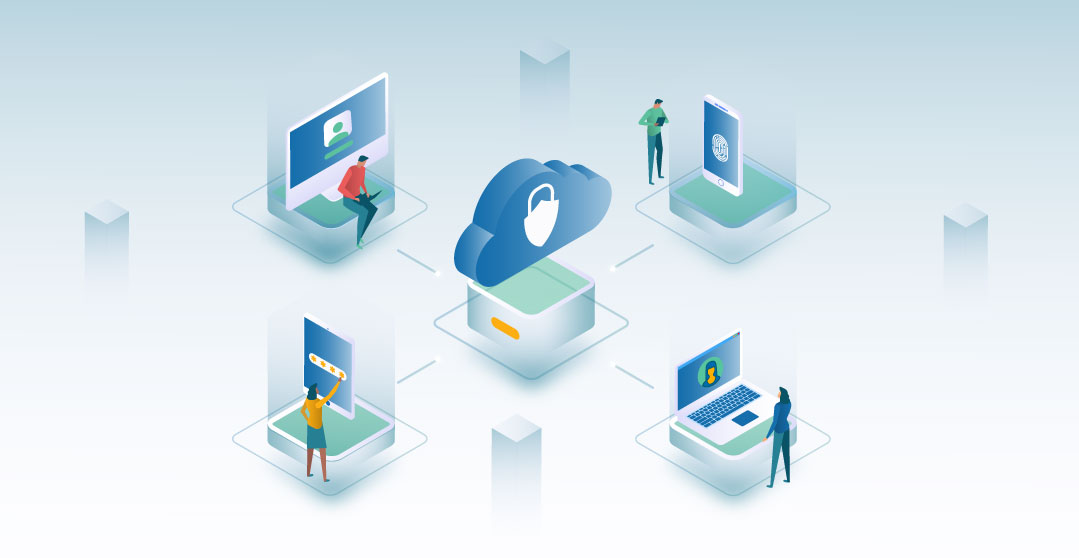Is the Future of Data Security in the Cloud Is Programmable?

It goes without saying that afterthought security and privacy leads to numerous problems, vulnerabilities, complexities off security products requiring customization.
A security breach does not occur in isolation; it is a series of events involving multiple stakeholders that either secure or compromise a system. All stakeholders—or components, as you may call them—have roles to play, each contributing to wide-ranging consequences. Although the organization is the fulcrum of this system, it is often held hostage by vulnerable third-party dependencies.
These vulnerabilities could stem from anything or anyone, ranging from a software application to its deployment, or from the company’s CEO, security team, to its developers. A lapse on any part can render the entire organizational infrastructure vulnerable in the cloud.
So why does it seem likely that the future of data security in the cloud will be programmable? Let’s explore some scenarios and work our way toward a solution.
For instance, company ‘A’—a cloud-based organization—decides to adopt new software that promises to increase innovation in its products or services. For this implementation, Company A would need its IT, security, and compliance teams, as the new software requires customization and integration into its cloud environment.
These teams will work together to deploy and secure the new software, which will also involve the use of third-party products for securing access control. Despite Company A’s predetermined efforts to implement security and privacy by design, the new addition effectively reduces each security measure to an afterthought.
Complexities and Vulnerability
It goes without saying that security and privacy implemented as an afterthought lead to numerous problems, including vulnerabilities and the complexities of security products requiring customization. Customization enables the integration of security products with the software they are meant to protect. However, the configuration and maintenance costs of these security products increase in direct proportion to the size and complexity of the software.
What makes the software vulnerable is the lack of compatibility, communication gaps, and insufficient coordination with security products. This is natural, given that the software and security products are different systems designed for distinct areas of infrastructure. The greater the vulnerabilities, the more security products will be required, which inevitably leads to even more complexities.
On average, medium to large-sized businesses use between 50 and 100 security products. Due to inadequate governance, this often results in numerous unresolved vulnerabilities caused by patchwork solutions.
DevOps Integration: From Development to IT Operations
Software development processes have evolved to prioritize reliability, scalability, and performance, reflecting the evolving role of developers. Before the widespread adoption of DevOps and cloud infrastructure, software development primarily focused on input/output methods, basic operating systems, and problem-solving programming paradigms.
Today, however, the increasing demand for software security has led developers to integrate the DevOps approach. This allows them to break free from the cycle of complexities and vulnerabilities by actively addressing security, privacy, and compliance within the overall system.
This process employs advanced tools deployed throughout an application’s development lifecycle to assess code vulnerabilities. These analyses provide developers with insights to rectify weaknesses that could lead to insecure configurations or operational flaws, preventing the need for security patches before release. Certifications like Microsoft Azure Developer Training offer expert-level knowledge necessary for developing solutions embedded with Infrastructure-as-a-Service (IaaS) implementations, such as Azure IaaS services and Azure storage services.
It is crucial for both senior and aspiring developers to gain in-depth knowledge of tools like Log Analytics and Application Insights to better understand cloud-native applications, which are rapidly becoming central to the future of cloud computing.
The secure coding practices and tools provided by the integration of DevOps teams enable developers to create software equipped with security and compliance visibility, as well as data flow control. This approach to security is not an afterthought; it is preemptive. When software is developed with built-in security, the complexities introduced by IT security products become irrelevant. This also helps eliminate vulnerabilities caused by software and security product incompatibility.
This demonstrates that programmable, model-driven software, developed as microservices with embedded tools (service packages), can manage data in perfect synchronization with the varying security and compliance requirements of elastic infrastructures. In other words, thanks to the flexibility of DevOps processes, data security and governance are now built into the development process.
Read more: DevOps vs. DevSecOps: What’s the Difference?
Cloud-Native Programmability
Cloud-native programmability enables applications to ensure absolute security and compliance within a cloud environment. These applications can manage data access, data governance, and customized protection, all while supporting the developers who create them. Together, these features pave the way for greater application portability.
Despite common concerns regarding security and compliance in cloud infrastructure, businesses across various industries—from retail and manufacturing to entertainment and technology—are increasingly embracing the economics and flexibility of the cloud. Cloud-native capabilities allow development teams to integrate cutting-edge tools, optimizing data control.
Regardless of where an application is deployed, organizations now have the power to select the most optimal infrastructure based on their specific IT preferences, including performance, reliability, scalability, and cost. Today, the optimization of security and compliance has made a wide range of cloud options available to businesses, from Platform-as-a-Service (PaaS) to serverless infrastructures, which no longer rely on IT teams for architectural stack maintenance.
This shift offers a clearer perspective on the future implications of programmable data security and its economic benefits. It allows cloud and IT service providers to focus on improving service delivery rather than security concerns. While the economic benefits have been briefly mentioned, the true potential for cost savings will arise from the consolidation of security products and streamlined deployment processes.



